How Marine Le Pen took National Rally from toxic fringe to brink of power
Emmanuel Macron may be ruing his early election gamble as his nemesis marches onwards, free of her father’s regime with a decades-long goal in her sights.
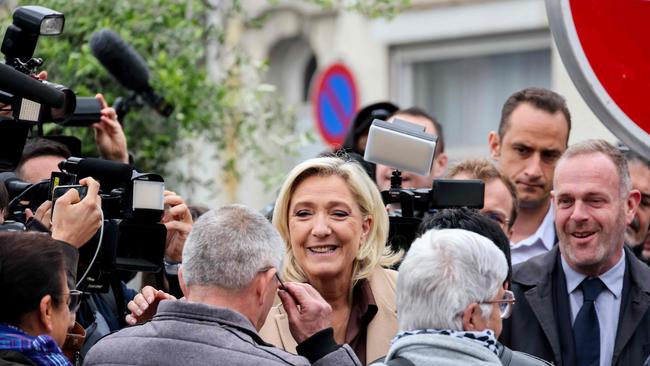
Strolling through a market in her constituency in northern France, surrounded by TV cameras, Marine Le Pen behaved like a woman who thinks everything is going her way. “We have to get France out of the trap in which it has been caught and back on track,” the dominant force in the National Rally declared after posing for selfies with locals and shaking hands with stall-holders in Henin-Beaumont.
It was just five days since President Macron had stunned France by dissolving the National Assembly and calling snap elections after the National Rally won last Sunday’s vote for the European parliament. The message was clear: France would have to choose between his party and Le Pen’s. This weekend Macron’s bet is looking risky and his call for a “republican front” against the Rally seems to be attracting few takers.
Instead, it is Le Pen’s camp that heads the polls buoyed by the defection of a chunk of the centre-right Republican party, heir to the once mighty Gaullists.
The National Rally campaign is led by Jordan Bardella, 28, her protege and its candidate for prime minister. The hard-right party looks set to win 29.5 per cent of the vote in the first round of the election on June 30, according to a poll by Cluster 17. This would put the National Rally just ahead of the New Popular Front, a fractious alliance of left, far-left and Greens on 28.5 per cent, which received a boost when Francois Hollande, the former Socialist president, said he would join them by standing as an MP, prompting speculation he may have his eye on the role of prime minister. “I am doing this for the country,” he told reporters.
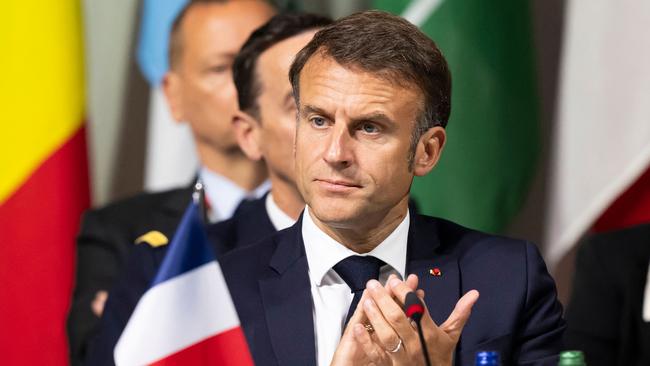
Macron’s Renaissance party and its allies are on a mere 18 per cent: the largest group in the outgoing parliament with 249 seats could be reduced to 70 after likely failing to make it into the second-round run-off in the majority of constituencies, leaving many voters forced to choose between left and hard right.
Given the antagonism between the three blocs, it is not clear how any government could achieve a majority after the second round on July 7.
Police said 250,000 people – 75,000 of them in Paris – took part in protests “against fascism” on Saturday in a foretaste of the unrest likely to erupt if the National Rally comes to power. By mid-afternoon there had been the first clashes in the capital with police, who responded with tear gas. Up to 21,000 officers were deployed across the country.
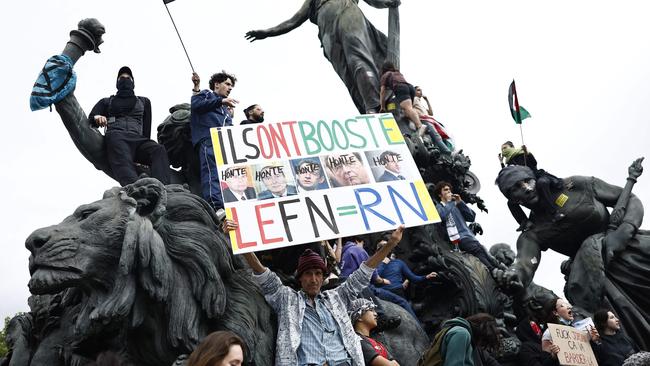
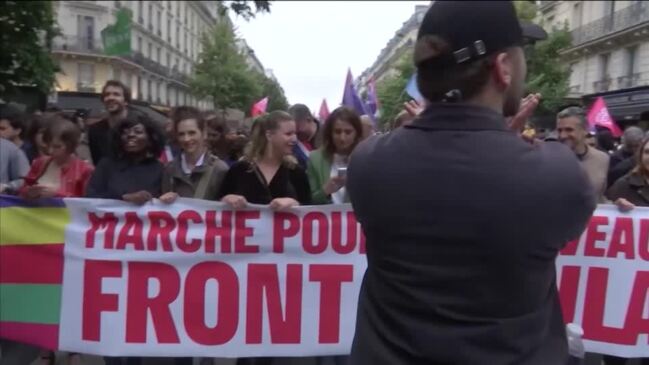
The turbulence on the streets was in contrast to the calm of Henin-Beaumont, chosen by Le Pen, 55, to launch her party’s election campaign 24 hours earlier. The stretch of the industrial north in which it lies used to be a place of coal mines and foundries. Those who worked in them used to vote solidly for the Socialists and Communists. Over the past decade, however, it has swung decisively to the opposite extreme.
The Hauts de France region these days is “sociologically disposed to vote for the far right”, said Tristan Haute, a political scientist at Lille University. Relatively high levels of poverty, unemployment and underemployment all feed discontent with mainstream politicians.
These days this tends to benefit the National Rally rather than the left, thanks to a replacement of the large employers of old with smaller firms, where trade union membership is lower. A number of Socialist former mayors have also been embroiled in corruption scandals.
Henin-Beaumont, home to 26,000 people, plays a special role for the party: Le Pen has been its MP since 2017, while it also has a National Rally mayor: Steeve Briois, 51, who joined her on her walkabout, has run the town since 2014. In last Sunday’s election, 61.4 cent of voters in Henin-Beaumont backed the National Rally, almost ten times the score of Macron’s list. Nationally, it won 31.4 per cent, dwarfing Macron’s 14.6.
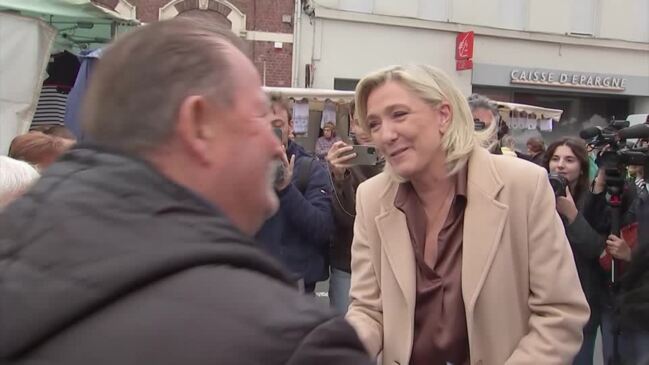
Briois’s popularity appears to have boosted the National Rally’s score. “It shows that when we’re in charge, we have the capacity simply to run things,” the mayor told me later.
Last weekend’s result has not come out of the blue: it instead reflects the changing nature of political allegiances in France and the skill with which Le Pen has exploited them since she took control of the party more than a decade ago. Founded by her former paratrooper father, Jean-Marie Le Pen, in 1972 as the National Front, it long operated on the fringes, not least due to the extreme nature of his own politics and the company he kept: its founding members included Second World War collaborators and even members of the Waffen SS.
Le Pen pere was also pursuing a career in business, which included creating a record company that specialised in historic recordings, including Nazi marches. Matters were not helped by his repeated dismissal of the gas chambers as a “detail of history”, which led to several convictions for Holocaust denial. Such views did not prevent the National Front achieving some successes, as in 2002 when the older Le Pen reached the second round of the presidential election.
It was the arrival of his daughter, Marine, who took over the leadership in 2011, that has transformed the party and turned it into a mainstream force. The motto was dediabolisation: detoxifying and normalising. In 2015 after her father refused to toe the line, she had him expelled. The change in the party’s name three years later was a further sign of her determination to break with the past.
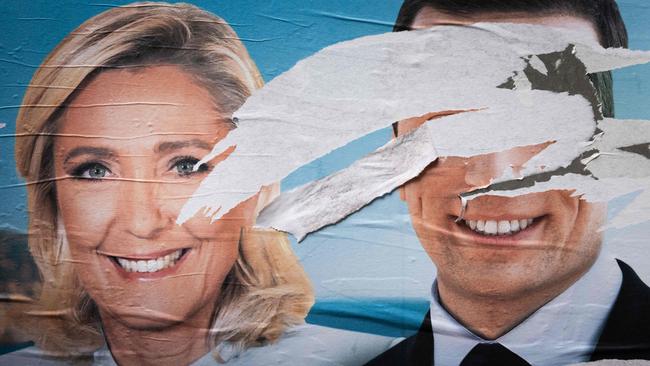
The central message has remained largely unchanged: “protection” of France’s borders against immigration and re-establishment of law and order. Since the surge in inflation two years ago, they have been coupled with a pledge to boost “purchasing power”. Bardella, who hopes to become prime minister, led its campaign for the European election. Le Pen reiterated during her visit to Henin-Beaumont that she would concentrate on a fourth bid for the presidency in 2027.
Also crucial to the party’s rise has been its drive to implant itself at local level. New mayors are reportedly given how-to manuals by party headquarters and told to show the party is fit to rule. Briois appears to have got the message. “When he says he is going to do something he does it. He keeps his promises,” said Anne-Marie, 63, a retired teaching assistant. Most people I met in the market after Le Pen’s visit appeared to be fans.
Nathan Desremaux, 18, handing out Communist party flyers, was not convinced. “They are treating the town like a showcase, and being careful not to do anything stupid,” he said.
Other places have also since fallen to the National Rally, among them Bruay-la-Buissiere, another little former mining town 20 miles to the west. It was won in 2020 by Ludovic Pajot, 30. He reeled off his achievements: the creation of a 17-strong municipal police force and the installation of CCTV cameras. The council has also invested in repairing roads and improving the streetscape. “Law and order is an important issue,” he said. “But after that, so is beautifying the city.”
The Times


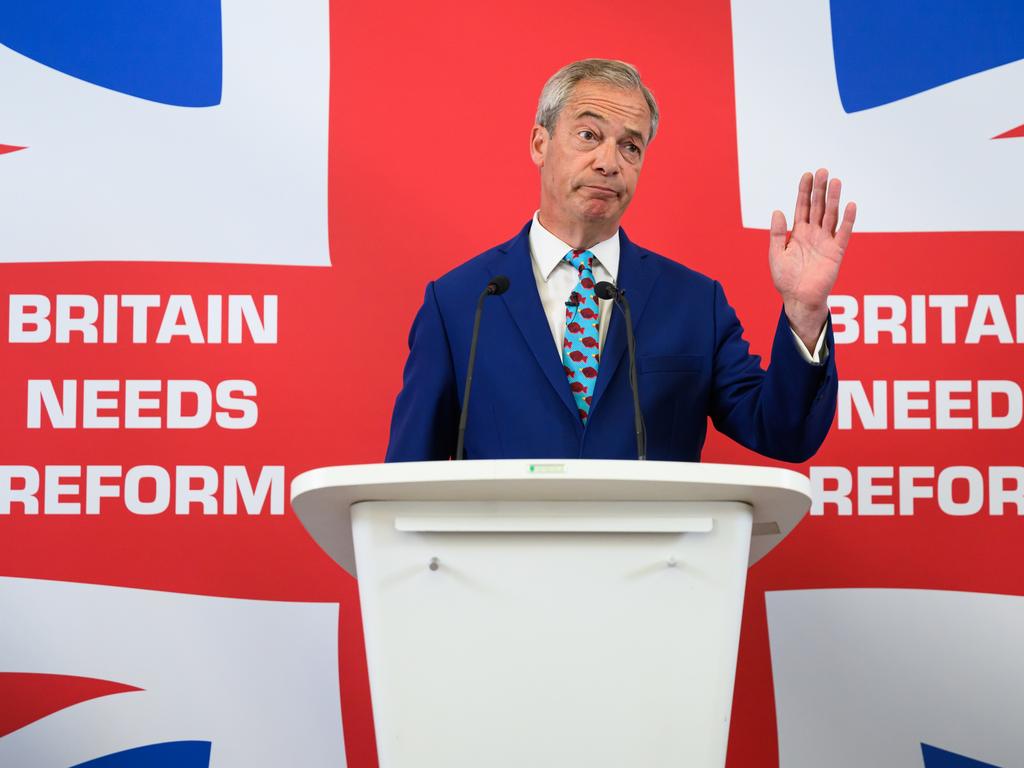



To join the conversation, please log in. Don't have an account? Register
Join the conversation, you are commenting as Logout